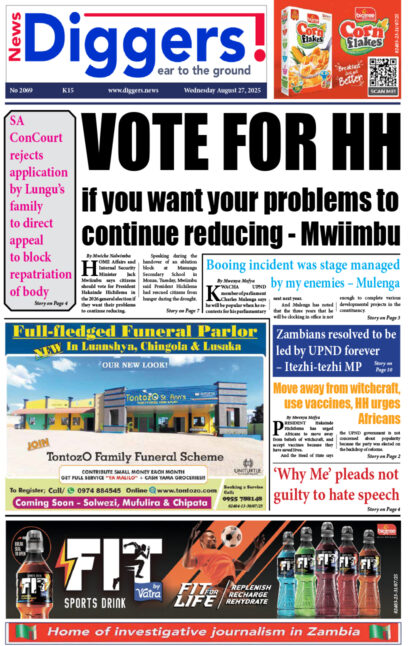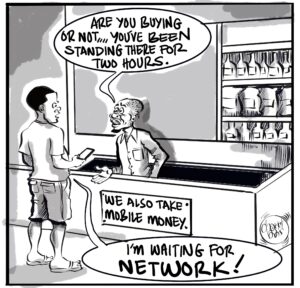Local Government Minister Charles Banda says it is not government’s responsibility to pay salaries for council workers advising that all local authorities in the country have a duty to raise their own funds to sustain workers.
Speaking during a press briefing held at Chief Government Spokesperson Dora Siliya’s office, Wednesday, Banda explained that government was not responsible for the payment of council workers.
“Let me make it very clear to all of you that it is not the Ministry of Local Government that provides salaries for local authorities, we are not there to give salaries to the councils. So there is no minister that has failed to pay salaries because it is not in my office where salaries come from. What we provide as the Ministry of Local Government to councils is additional funding to monies which the councils themselves raise to help them principally with projects and that is the money called equalisation fund. That is just a top up to what the councils are supposed to raise, councils have to generate revenue. But what has been happening is that most of the councils have not been innovative, there is a lot of money laying around. That is why in the recent past, we have started appointing evaluators to go into local councils to help them do valuation of the properties and assets which they have where they can raise the monies from,” Banda explained.
Banda also said management at the Lusaka City Council (LCC) had a bad attitude towards generating revenue for self sustainability.
“Lusaka City Council (LCC) has got the capacity to raise money for all their salaries and projects. But where the problem lies is the collection of revenue. I went to tour COMESA market with my Permanent Secretary and the Town Clerk for LCC. I can tell you that half of COMESA market doesn’t pay anything to the council. But why? I asked the Town Clerk ‘why are you not collecting revenue from here and yet you want to come and line up at the ministry waiting for equalisation fund to go and pay salaries’? Ndola City Council, Livingstone, Chipata… they have the capacity to raise money and pay their salaries. But you see they (LCC) have taken it upon themselves that when equalisation fund comes that is the time to pay salaries. I think that is a wrong attitude. Kapiri Mponshi is the model of the councils, they are always doing things which can generate revenue for themselves ,” he said.
Banda also announced that government was working on modalities to remove cadres from markets and bus stations in an effort to make trading places comfortable for Zambians.
He insisted that the ban on street vending in Lusaka was still in force despite having opened up some of the streets to trade.
“The ban on street vending is still in force. There is no street vending being allowed in the CBD and this includes Cairo road, Chachacha, Freedom Way. We have excluded Lumumba because we went to do our analysis of the designated area for street vending which is Simon Mwewa lane, we found that we had too many people and this was forcing certain people to start trading in undesignated areas and this is when we reached a compromise to say ‘let’s release one more street’. I personally went their to Lumumba road with my PS and we gave them a street to trade from and the timing still stands, that is 16 to 20 hours. So we have not lifted the ban on vending at all,” said Banda.

























One Response
Politics is master science, indeed as Aristotle described it. These municipalities do not pay any direct taxes to ZRA. Rather, municipalities receive grants and subsides from the treasury to assist in municipal operations. And yet, the same municipalities do not have enough financial resources to sustain their operations. A transition period would help during which the municipalities would improve municipal revenues. In short, it would be foolhardy for treasury to force municipalities to become self-reliant without providing leadership. It takes two to tango.